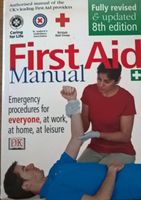- O2 Community
- Discussions, Feedback & off-topic
- Discussions & Feedback
- How do you assess your health?
- Subscribe to RSS Feed
- Mark Topic as New
- Mark Topic as Read
- Float this Topic for Current User
- Bookmark
- Subscribe
- Mute
- Printer Friendly Page
How do you assess your health?
- Mark as New
- Bookmark
- Subscribe
- Mute
- Subscribe to RSS Feed
- Permalink
- Report Content
on 07-05-2019 10:50
Hi everyone!
As part of our health-related discussions, this time we'd like to talk about how you look after your health, in terms of assessing overall health and fitness on a regular basis.
There are many different methods and devices available for assessing your health and fitness, such as...
- Going to regular 'MOTs' or GP check-ups
- A blood pressure monitor at home
- Body weight scales or composition monitors
- There are also smart scales that can also check your heart rate, body water percentage and other measures while weighing you
- Health alert and other monitoring devices
- Thermometers
- Wearable tech that comes with a sensor to track things like your heart rate
It would be interesting to hear if you use any of these (or any that's not listed above) and what you think of them? ![]()
- Mark as New
- Bookmark
- Subscribe
- Mute
- Subscribe to RSS Feed
- Permalink
- Report Content
on 07-05-2019 11:52
Some people deal with very unexpected conditions and illnesses.
Then their care is reliant on hospital, GP's, District nurses etc etc
Wearable tech would have absolutely no influence on the outcome of their health and in some cases could cause confusion and have an adverse effect on prescribed treatment plans.
Also home BP monitoring machines. All very well, but can the individual interpret the results?
The only two on that list which would interest me PERSONALLY,
Regular check ups/MOT's at your GP's and a thermometer.
Veritas Numquam Perit

- 96862 Posts
- 614 Topics
- 7196 Solutions
on 07-05-2019 12:30
- Mark as New
- Bookmark
- Subscribe
- Mute
- Subscribe to RSS Feed
- Permalink
- Report Content
on 07-05-2019 12:30
Well I do have a thermometer inherited from a long stay in hospital but I've never needed to use it yet. All my ailments require ongoing hospital treatment with the occasional doctors visits or the minor injuries treatment centre.
Latest is a broken finger from one of my many meetings with the floor....
- 13925 Posts
- 124 Topics
- 410 Solutions
07-05-2019 14:01 - edited 07-05-2019 14:17
- Mark as New
- Bookmark
- Subscribe
- Mute
- Subscribe to RSS Feed
- Permalink
- Report Content
07-05-2019 14:01 - edited 07-05-2019 14:17
Hi @Marjo
I use a B.P. Monitor ~ just to keep a check on it. It is easy to understand will give you green light good within parameters or orange light for outside parameters and also gives your pulse.
If orange you need a series of readings over a few days usually orange is only temporary.
It is my opinion that everyone should be informed of the systolic and diastolic pressures and get a basic understanding of how their heart functions, it is very interesting.
I have a thermometer just in case I need to know my temp. but not often.
In the main (now) we are mainly on "break down" maintenance at the G.P. no health checks there. My car gets more care at the garage than I do under the MOT scheme put in by the Govt.
There is no similar scheme at GP for human health check.
I know what my weight should be,( have ordinary scales) and my BMI ~ I keep a check on that occasionally.
I have to keep myself informed on general health and fitness.
At present I don't need any more tech.
I also took a St.John's Ambulance Course for First Aid /Accident and Emergency ~ Heart etc.
they are really nice helpful practical folk.
I did get a certificate! 
I have a St.J. Ambulance full First Aid kit in my car and this book at home.

HAPPINESS IS BEE SHAPED

- Mark as New
- Bookmark
- Subscribe
- Mute
- Subscribe to RSS Feed
- Permalink
- Report Content
on 07-05-2019 15:48
Heath gadget wise I have an Apple Watch Series 4 which tracks my activity, heart rate and recently added the ECG feature to check my heart for a-fib
I’ve also got a blood pressure monitor as I am on medication for my blood pressure
Finally I’ve got a sleep monitor which tracks how long I sleep for, my heart rate when I’m sleeping, snoring, breathing rate and can also check for breathing irregularities in the night which can be a sign of sleep apnea
- 13925 Posts
- 124 Topics
- 410 Solutions
on 07-05-2019 17:08
- Mark as New
- Bookmark
- Subscribe
- Mute
- Subscribe to RSS Feed
- Permalink
- Report Content
on 07-05-2019 17:08
Wow @davethorp
I think that is marvellous. Well done ~ we should all look after ourselves and the way forward is tech.
get informed ![]()

HAPPINESS IS BEE SHAPED

- 7881 Posts
- 468 Topics
- 55 Solutions
on 08-05-2019 11:33
- Mark as New
- Bookmark
- Subscribe
- Mute
- Subscribe to RSS Feed
- Permalink
- Report Content
on 08-05-2019 11:33
@Cleoriff good point about individuals being able to interpret the results - without that aspect, assessing anything at home would not work. How do you think this could be made to work properly then? @TallTrees mentioned her monitor being quite easy to read with colour indicators, and also that educating people on their use and what the different aspects of our health are is important. I wonder if there are any services (e.g. at the GP) that could help you learn how to use a blood pressure monitor at home for example, to make sure the results are interpreted correctly? (apart from just looking at the device manual).
@jonsie Something that came to mind related to things like broken fingers: in the future, it would be interesting if there was a device that you can use at home, to assess the healing process (after showing the finger to the GP): it would scan the finger, and tell you how the healing is going in terms of e.g. percentage. Today it looks like your finger is 45% healed. Today it's 90%, just a little bit more.... and then one day you scan it and it says it's 100% complete. ![]() It could also flag if something's going wrong with it and tell you to visit your GP.
It could also flag if something's going wrong with it and tell you to visit your GP.
@davethorp I'm very interested in that watch and have been considering it just for the heart monitor feature. The sleep monitor sounds interesting too. What kind of device is it - is it one of those that works together with your smartphone?
- 130049 Posts
- 838 Topics
- 7607 Solutions
on 08-05-2019 11:59
- Mark as New
- Bookmark
- Subscribe
- Mute
- Subscribe to RSS Feed
- Permalink
- Report Content
on 08-05-2019 11:59
My point is, the difference between individuals and the 'norm' for them.
A BP monitor will read your blood pressure and show you 'pre-prescribed' normal limits.
The Systolic rate and the Diastolic rate... for instance 135/80.
Would you know what those two readings relate to?
Which of the two is the most important?
Also and as an example, I have ALWAYS had a low B/P (Generally 100/50) So a high blood pressure for me would be 145/90. This would NOT be high for someone else. It would be classed as normal
So would I be suffering with hypertension or hypotension?
What would be the treatment for either of those?
No apologies for sounding a bit like a nurse. I am one. (albeit retired) 
Veritas Numquam Perit

- 7881 Posts
- 468 Topics
- 55 Solutions
on 08-05-2019 12:27
- Mark as New
- Bookmark
- Subscribe
- Mute
- Subscribe to RSS Feed
- Permalink
- Report Content
on 08-05-2019 12:27
Oh yes I see what you mean @Cleoriff . So it could be handy to have a feature in the device that allows the user to input their "norm" so the monitor can take all these things into account. And perhaps at the GP, together, they could initially set it up together with the patient and instruct how to do this in the future. Something like that could perhaps help with it. Now when it comes to those two readings you mentioned though, I wouldn't know this myself without looking it up. 😞
- 130049 Posts
- 838 Topics
- 7607 Solutions
on 08-05-2019 12:39
- Mark as New
- Bookmark
- Subscribe
- Mute
- Subscribe to RSS Feed
- Permalink
- Report Content
on 08-05-2019 12:39
You could always find out YOUR normal B/P from yout GP who would have it on your records. It could also be taken on your visit to ask about it.
Once you have a base line to work from, then a home monitor reading would be absolutely fine. As long as you have no heart or circulatory problems to contend with.
I remember once being admitted to hospital and the nurses (who had no access to my records) took my BP and were pleased it was 150/90. Until I told them my normal B/P was 100/60. So I was actually hypertensive (for me). That caused them to re-assess my diagnosis.
Veritas Numquam Perit






